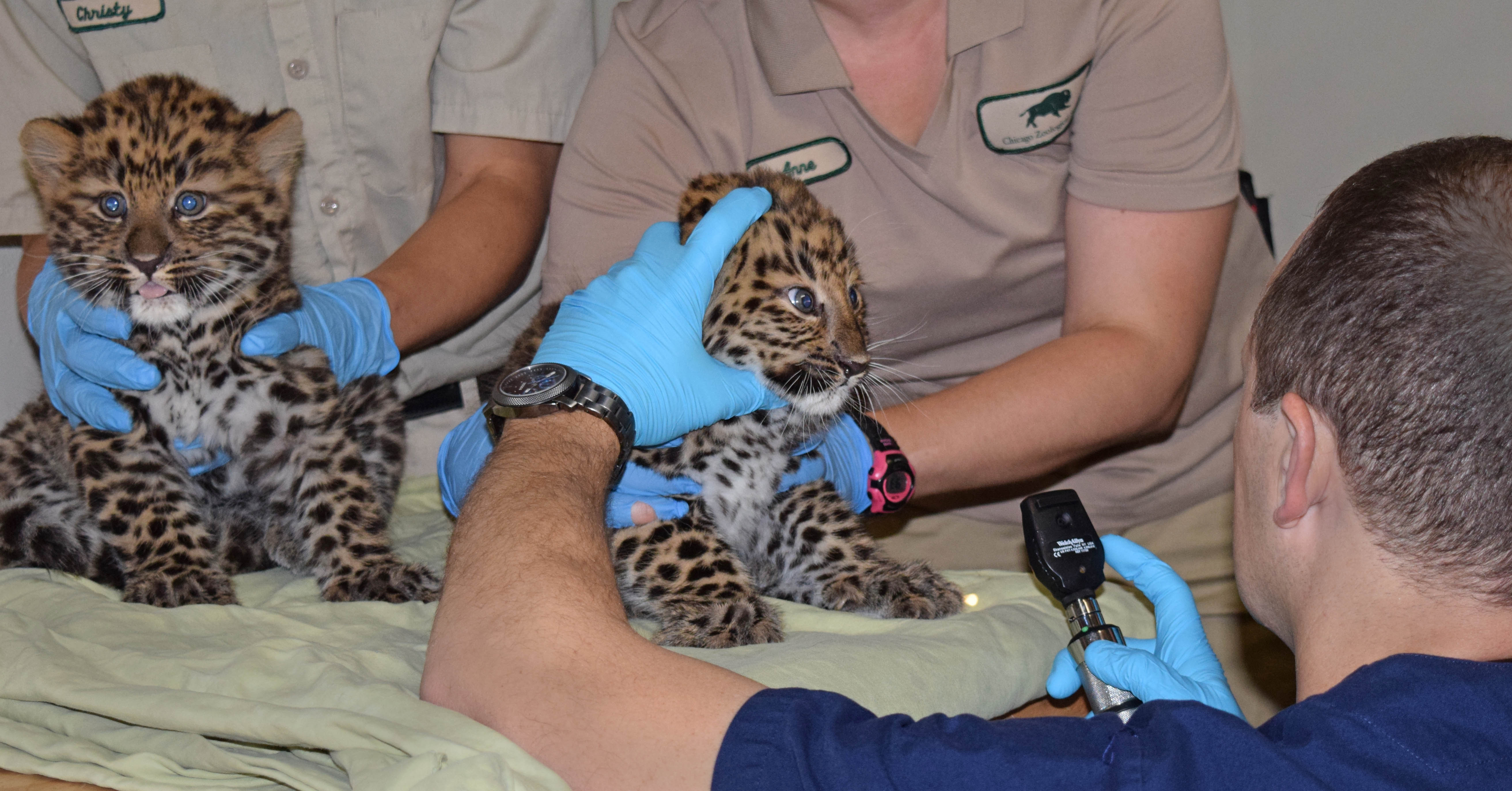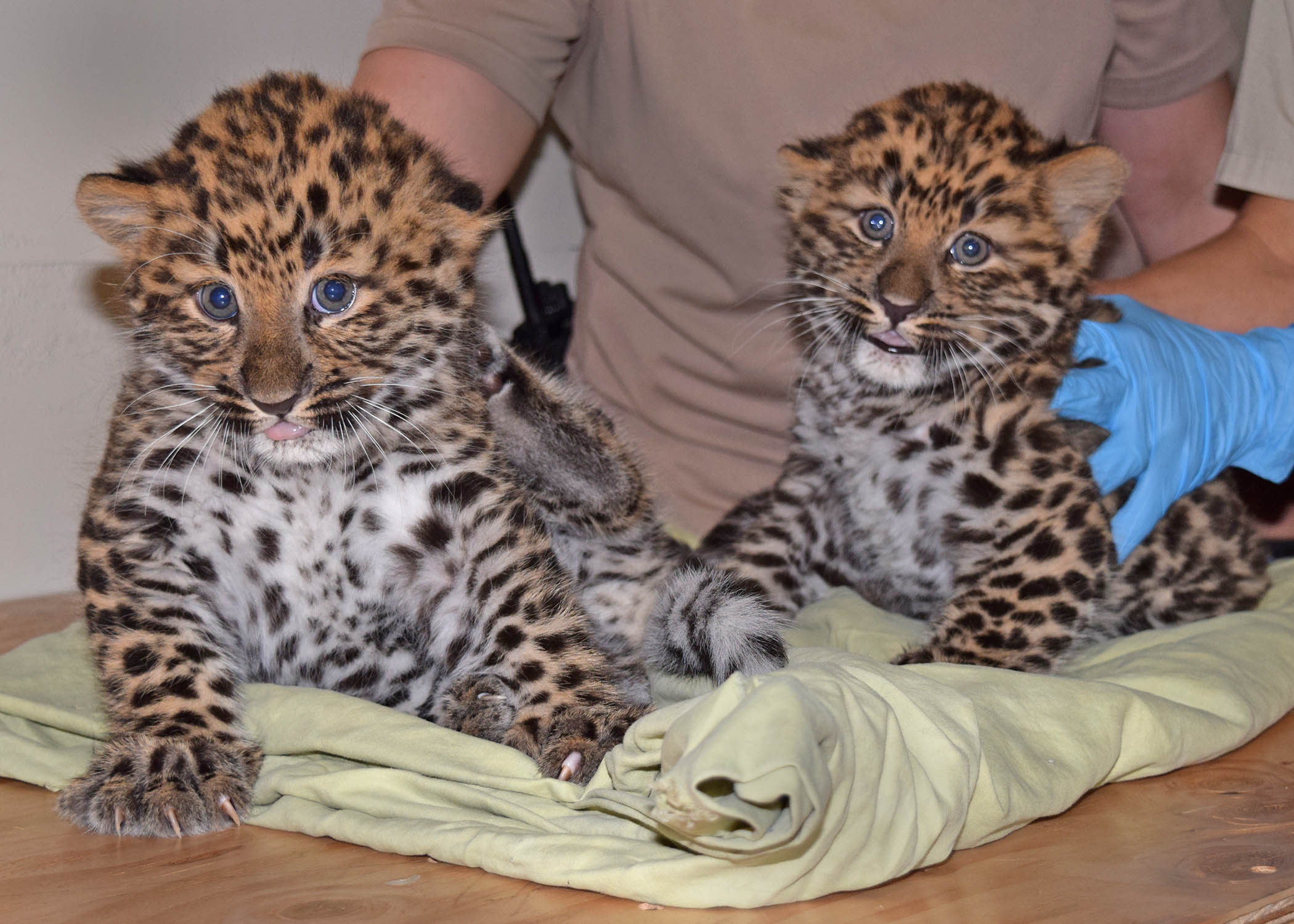Rare Leopard Cubs Born At Brookfield Zoo
CHICAGO (CBS)--A pair of rare Amur leopard Cubs are the newest residents of Brookfield Zoo.
The spotted, blue-eyed siblings were born in April and will make their public debut in July. The zoo hasn't announced an exact date.

Zoo officials did not release the cubs' names, but said they were born from parents Lisa, 7, and Kasha, 8.
Together the pair has already had one son, a 2-year-old named Temur. He was since been transferred to another zoo.
Lisa and Kasha's courtship was an unconventional one.
Lisa was living at the Saint Louis Zoological Park and Kasha was all the way across the Atlantic Ocean, at France's Le Parc Des Felins.
Kasha was flown to North America, where he was united with Lisa at Brookfield Zoo.
The pairing was part of the Association of Zoos and Aquariums' (AZA) Amur Leopard Species Survival Plan.
The program works to preserve endangered species by encouraging breeding.
The Amur leopard is critically endangered with less than 65 animals left in the wild, according to zoo officials There are 82 Amur leopards in 42 accredited North American zoos.
The birth of the cubs marks a crucial addition to the species population.

"We are all very excited about the births of our two Amur leopard cubs," said Amy Roberts, senior curator of mammals for the Chicago Zoological Society, in a statement. "It is our hope that guests will not only enjoy seeing these very charismatic cubs exploring and playing in their outdoor habitat, but will also gain an appreciation for the species and learn why conservation efforts are so important for this leopard."
Amur leopards are a nocturnal species known for their keen senses of hearing, vision, and smell.
They originate from the Amur River basin and the mountains of northeastern China and the Korean peninsula.
Today, they are found only in one isolated population in the Russian Far East, although there may be a few leopards remaining in the Jilin Province of northeast China.
They are the northernmost subspecies of leopard in the world and are often mistaken for snow leopards.
Zoo officials said the biggest threats to these solitary animals are poaching, retribution hunting, fires, logging, human settlement and a decline in prey.



